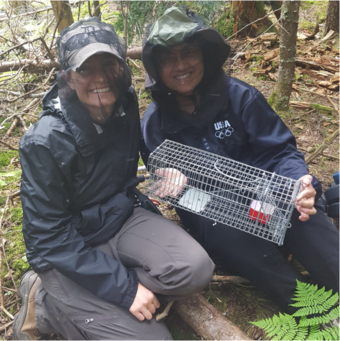About
The Climate Adaptation Science Centers (CASCs) partner with natural and cultural resource managers to provide the scientific information needed to help fish, wildlife, ecosystems, and the communities they support adapt to the impacts of a changing climate. Our network is comprised of eight Regional CASCs, managed by the National CASC located at USGS headquarters in Reston, VA.
Who We Are
The domain of the CASC network covers the entire continental U.S., Alaska, Hawai'i, the U.S. Affiliated Pacific Islands, and the U.S. Caribbean. The CASCs are federal-university partnerships; for each CASC, a university serves as the host institution, and additional university or non-university institutions serve as regional consortium members.
History of the CASCs
The National Climate Adaptation Science Center (NCASC), formerly named the National Climate Change and Wildlife Science Center, was established by Congress in 2008. Housed within the USGS, NCASC was tasked with providing science to help managers of the country's fish and wildlife resources respond to the impacts of climate change. To meet this goal, NCASC established the 8 regional CASCs.
Who We Are
The domain of the CASC network covers the entire continental U.S., Alaska, Hawai'i, the U.S. Affiliated Pacific Islands, and the U.S. Caribbean. The CASCs are federal-university partnerships; for each CASC, a university serves as the host institution, and additional university or non-university institutions serve as regional consortium members.
History of the CASCs
The National Climate Adaptation Science Center (NCASC), formerly named the National Climate Change and Wildlife Science Center, was established by Congress in 2008. Housed within the USGS, NCASC was tasked with providing science to help managers of the country's fish and wildlife resources respond to the impacts of climate change. To meet this goal, NCASC established the 8 regional CASCs.


